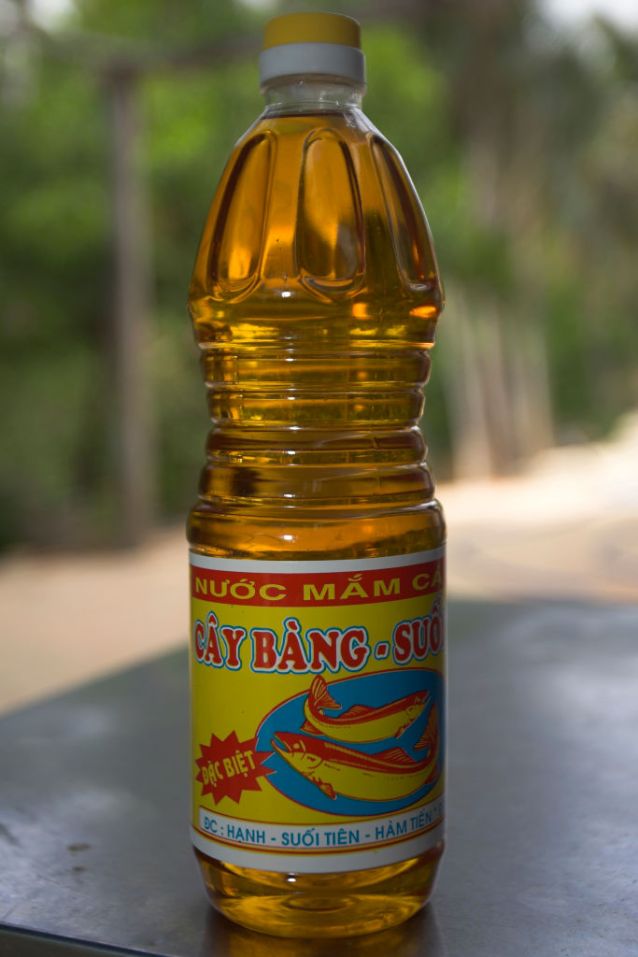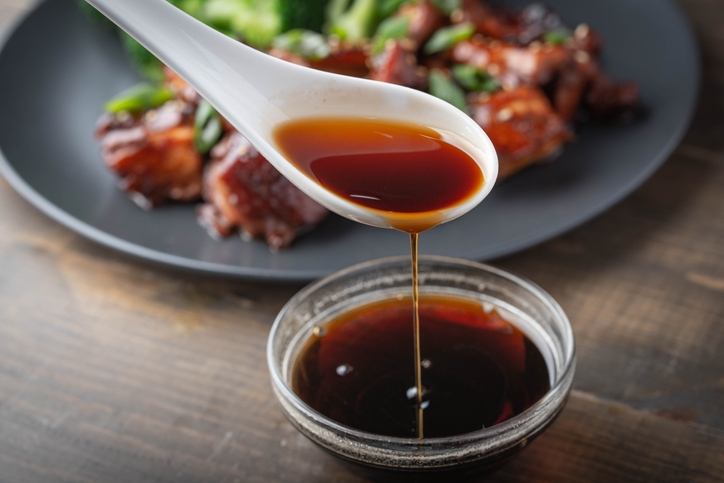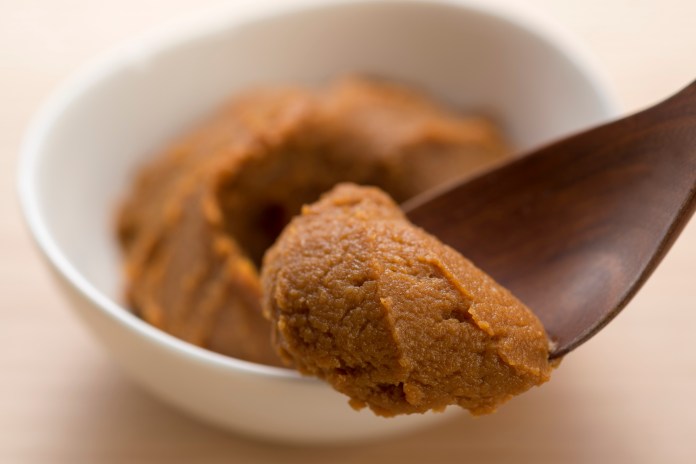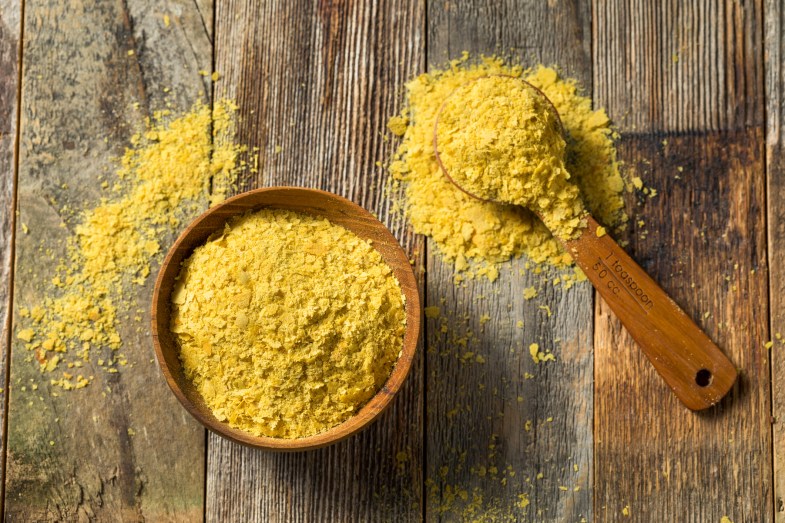Soy sauce is a staple condiment in Asian cuisine. Use it as a dipping sauce for sushi, drizzle some over your egg roll and dumplings or add umami flavor to fried rice and stir fry. Soy sauce has so many uses in the kitchen and it's always nice to have on hand until you realize you've run out. If you find yourself out of soy sauce packets from last week's take-out dinner, there's good news to share. There are plenty of soy sauce substitutes to use.
Videos by Wide Open Country
These substitutes are also helpful for those with a soy allergy or who need a gluten-free alternative. When your favorite recipe calls for soy sauce and the jar is empty, grab one of these instead.
1. Coconut Aminos
![AMN101CSB_1200px_x800[1]](https://www.wideopencountry.com/wp-content/uploads/sites/4/eats/2021/10/AMN101CSB_1200px_x8001.jpg?resize=800%2C800)
Nutiva
A popular soy-free, gluten-free, and vegan soy sauce substitute is coconut aminos. It's a sauce made from fermented coconut sap and is pretty similar to soy sauce with low sodium and it tastes a bit sweeter than soy sauce. It also contains amino acids, giving some health benefits as well. Some note it is sweeter than traditional soy sauce, so go light if adding to soups and salad dressings.
2. Tamari Sauce
![61H4Nxl4JkL._SL1500_[1]](https://www.wideopencountry.com/wp-content/uploads/sites/4/eats/2021/10/61H4Nxl4JkL._SL1500_1.jpg?resize=1024%2C1024)
San-J
Tamari contains less sodium and contains less wheat than soy sauce. However, you can find some brands out there that are labeled as gluten-free.
3. Worcestershire Sauce
![71m1c6QpKHL._SL1500_[1]](https://www.wideopencountry.com/wp-content/uploads/sites/4/eats/2021/10/71m1c6QpKHL._SL1500_1.jpg?resize=1024%2C1024)
Lea & Perkins
4. Liquid Aminos
![PR85BI354_SVCBLA_Liquid_Aminos_IMD[1]](https://www.wideopencountry.com/wp-content/uploads/sites/4/eats/2021/10/PR85BI354_SVCBLA_Liquid_Aminos_IMD1.png?resize=1024%2C768)
Bragg
You have probably seen Bragg liquid aminos at the health food store, grocery store, or even Amazon. Liquid aminos are made from soybeans, but not fermented. It's a great gluten-free alternative to traditional soy sauce and tastes very similar. Liquid Aminos are not as strong in flavor though and have a sweetness to them.
5. Fish Sauce

Getty Images
Fish sauce is an easy way to add instant umami flavor to stir fry and fried rice. It's made from fermented fish, usually anchovies, and salt. It's gluten-free, and does not contain soy, however, it does provide saltiness. Fish sauce makes a great soy sauce alternative and will definitely enhance the flavor of any dish.
6. Homemade Soy Sauce

Getty Images
A healthy, homemade alternative to store-bought soy sauce is actually quite easy to make at home, so why not make your own soy sauce substitute? Combine beef broth, red wine vinegar, balsamic vinegar, molasses, garlic powder, onion powder, ground ginger, and fish sauce and bring to a simmer until the liquid is reduced by half. The great thing is that you can adjust the salt level to fit your tastes.
Other recipes have been known to include things such as sea salt, apple cider vinegar, dark molasses, and beef bouillon.
This DIY soy sauce will keep for about 3 weeks in the refrigerator. Get the recipe here.
7. Maggi Seasoning
![61ii0hqDwwL._SL1500_[1]](https://www.wideopencountry.com/wp-content/uploads/sites/4/eats/2021/10/61ii0hqDwwL._SL1500_1.jpg?resize=1024%2C1024)
Maggi
8. Miso Paste

Getty Images
Miso paste used to only be found in Asian or specialty stores, but now it's more common in regular grocery stores! Soybeans are fermented with salt and a special fungus, this savory-salty paste tastes really great in soups, stews, or ramen when blended directly into the hot liquid, where it can kind of melt in. You know, like miso soup!
9. Anchovies

Getty Images
Okay, anchovies aren't a swap for soy sauce in every recipe. However, anchovies add a TON of umami flavor. So if you're supposed to add soy sauce to a sauce or curry recipe, you can finely chop up the anchovies and add them in instead. They taste way better in a cooked recipe; we wouldn't add them in raw.
10. Nutritional Yeast

Getty Images
Vegans already know about nutritional yeast thanks to its usage as a cheese alternative. Made from the same kind of yeast as baker's yeast and brewer's yeast, these yeast cells offer a cheesy, savory, umami, nutty flavor. You can sprinkle it over food like parmesan or salt, or throw it into the pan while your food is cooking. You can use it in pretty much any application that you would use soy sauce in, except you may need to add extra salt!
READ MORE: Don't Have Parmesan Cheese? Use These 6 Substitutes
Products featured on Wide Open Eats are independently selected by our editors. However, when you buy something through our links, we may earn a commission.





